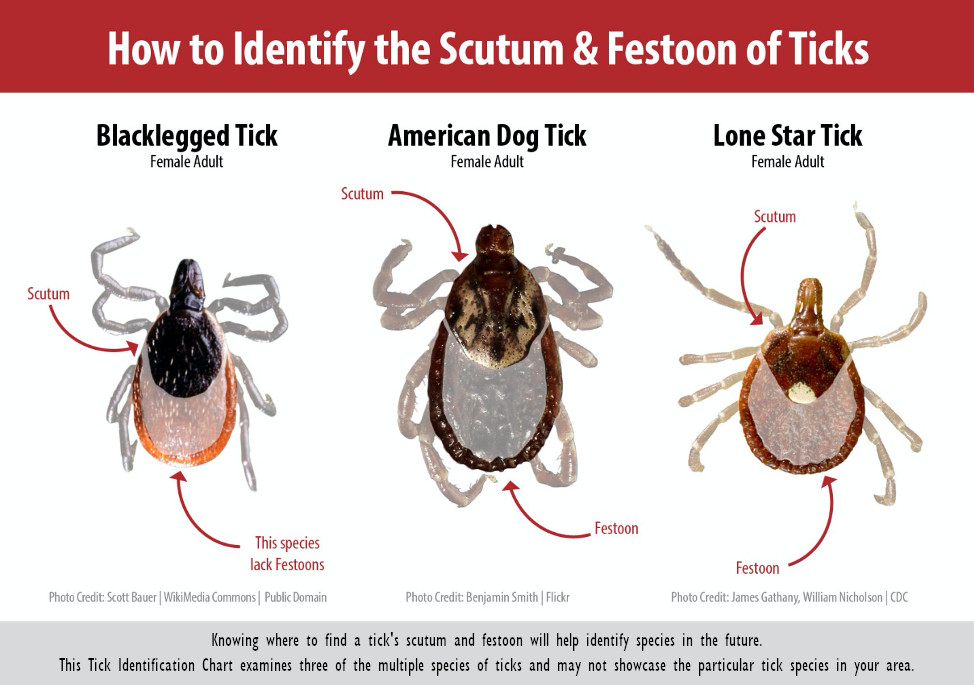Get a free estimate
If you have questions about our services, plans, or pricing we are here for you. Fill out the form below and we will communicate with you by email (and of course provide you with a free estimate).
FEBRUARY 01 2022 /
Ticks are a common pest around D.C., Maryland, and Virginia, especially in the summer and fall months of the year. They thrive in the thick forests that often surround residential areas, and can easily get onto your property using their impressive hitchhiking skills.
While tick bites are a fairly frequent occurrence for those that like to spend a lot of time outdoors, they can still pose serious health risks to people and pets.
With your safety and the safety of your family in mind, here are some important facts about ticks that you should be aware of, as well as the misconceptions and myths about these harmful parasitic pests.
Scientists would describe ticks and spiders as ‘kissing cousins.’ They are actually more related than ticks are to insects.
Ticks may be mistaken as insects because, in their larval stage, they have six legs. They grow their last set of legs when they transition into their nymph stage.
Ticks and spiders belong to the class called are arachnids. Ticks have three life stages: larva, nymph, and adult. Lyme disease is mostly transferred from ticks in their nymph stage because they are very small.
Small mammals are the originating carriers of the bacteria, Borrelia burgdorferi, that causes Lyme disease. It does not harm these hosts, but when ticks feed off of these mammals, they contract the bacteria and become a vector.
When this bacteria is transferred to humans, it leads to Lyme disease. Ticks are the only known vectors whose bite can lead to Lyme disease. It cannot be spread by mosquitoes, fleas, other biting insects or arachnids.
Ticks also carry the bacterium, viruses, and microscopic parasites that cause Powassan, Anaplasmosis, Colorado tick fever, Rocky Mountain spotted fever and others.
Lyme disease is the most prevalent tick-causing disease in the DC, Maryland, Virginia area.
Despite their bad reputation, many scientists believe ticks may play a vital ecological role in maintaining population control in certain animals, and by preventing overgrazing of plants and their resources.
It is a common belief that ticks wait high on treetops and fall on their victims, or that they can jump and run to attach to any host of their choosing.
The truth is, ticks cannot jump, fly, or run. Ticks grasp onto their hosts by waiting in tall grass, bushes or brush.
They hold on to the plants with their third and fourth pair of legs while outstretching their first pair of legs, waiting to climb onto the host. A tick is very patient and waits for the right host to come along, with some species of tick larvae surviving as much as 540 days without feeding.
These two species of ticks are commonly mistaken for one another, but the Blacklegged tick is much smaller than the American Dog Tick.
Also known as the wood tick, the American Dog tick is commonly found feeding on dogs, and the Blacklegged tick, also known as the deer tick, is commonly found on deer.
The American Dog tick is not known for carrying Lyme Disease but is a vector for Rocky Mountain spotted fever. The Blacklegged tick is a known carrier for Lyme Disease.
The most common ticks in the DC, Maryland, Virginia area are the Deer tick, the Brown Dog tick, the Lone Star tick, and the American Dog Tick.

Even though some species of tick larvae can live up to 540 days without feeding, a blood host is essential for transitioning through and completing its growth cycle.
Once a larva finds a host, it feeds for approximately 5 days then drops off to molt into a nymph. An American Dog tick nymph can live up to 580 days without feeding. Adults can live up to 2 years without feeding.
It depends on the species, but it usually takes 3 months to 3 years for American Dog Ticks to complete a life cycle.
The life cycle of the Deer tick takes about two years to complete.
A tick's survival and development are dependent on the environment and the availability of hosts. Under favorable conditions, a Deer tick may be capable of developing in less than one year.
Adult ticks seek host animals and after engorgement on blood, they will mate.
Female ticks deposit from 3,000 to 6,000 eggs on the ground, usually in sheltered areas like inside wood piles, under rocks and in the crevices of walls and structures.
Immature ticks hatch from these eggs and must feed in order to grow and develop. Male ticks usually die after mating with one or more females, although some may live for several months. Females die soon after laying their eggs in protected habitats on the ground.
Blacklegged ticks do not die as a result of cold weather. They will typically find shelter under leaf litter to stay hydrated and hunker down during the winter months.
Once temperatures are above freezing, they climb back onto knee-high vegetation, to wait for a chance to grab onto a passing deer, dog, cat, or human.
At American Pest, we offer proven pest control services to help residents of D.C., Maryland, and Virginia to control ticks around the yard—keeping you and yours active outdoors!
With superior protection from biting insect pests, American Pest is the ideal solution to protect the ones you love. Read about our Tick Control Program and contact us for more information.